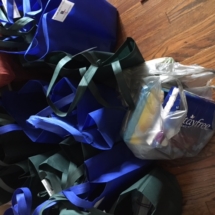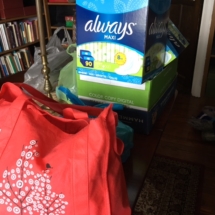I work in a building filled with statues and monuments. There are statues of famous people who have touched our lives by the way they led their own. There are windows that remind us of events in our history, ancient and modern. There are plaques dedicated to loved ones who died serving our country or who died as children, dedicated to those who generously gave of themselves and should be remembered.
And each of these monuments, large and small, before they were built, were first submitted to the community. Some committee looked at the offering and decided if it represented what we wanted to stand for, how we wanted people to come to a deeper understanding of our values and beliefs. The committee rendered an opinion that was then affirmed or argued by other groups and committees until a decision was made. We looked for a wisdom deeper and broader than one person or perspective could offer.
As I contemplate these monuments, I am also thinking about the statues and monuments in the south, the statues of Confederate leaders that are being removed or relocated. As a person who has studied and appreciates history, I have wrestled with what is right, with the original intent of the statue, and what it means today.
What struck me was how easy it is to pick and choose what parts and events in history we want to call to the attention of others. It reminds me of people who will choose a passage from the Christian Scriptures completely out of context to make their point. You can find almost anything in the Bible to justify what you want to do or believe, especially if you limit the passage to a sentence or two. The Bible needs to be read in its entirety, needs to be understood in the biggest picture. Otherwise it loses its holiness and becomes an opportunity to glorify a person or idea rather than God.
I see the same thing happening in our country. We are picking and choosing the parts of history that make the point we want to make, that supports ideas that we think are right or true or even sacred. And frankly that is easy. The history of our country is so rich and diverse that we can find an incident or a quote to support just about anything, especially if we take it out of its context. Looking at the bigger picture is more of a discipline, more complicated, and much more honest.
If we are wise, we will be big picture thinkers. Many people have encouraged us to know history in order to learn from it. But just like we limit ourselves when we follow only the news outlets that agree with our way of thinking, we lose our focus if we don’t put historical events in their broadest context, and that includes submitting our interpretation to a community of scholars who can help us to understand deeper implications.
In our own area I see a lot of confederate flags hanging from homes and I wonder about the intention. What are the bearers of these flags trying to tell us about who they are and what they believe? I understand these flags to be a symbol of racism. Maybe I don’t see the full picture. But that is the problem with monuments and symbols. So often we cannot even remember the original ideals they represent because we have co-opted them into our current debates.
When any symbol becomes recognized as a means of oppression, as a way to offend or hurt, as a sign of superiority, it stands against democracy. Hate, supremacy, racism—these cannot be political positions in our country because democracy stands for the good of all people, one nation under God. As a nation we need to come together, to be united, to recognize how great this country is now and continue build it up. Any other action hurts all of us, equally. How long will we stand for division and what sacrifices are we willing to make to repair our broken nation?


